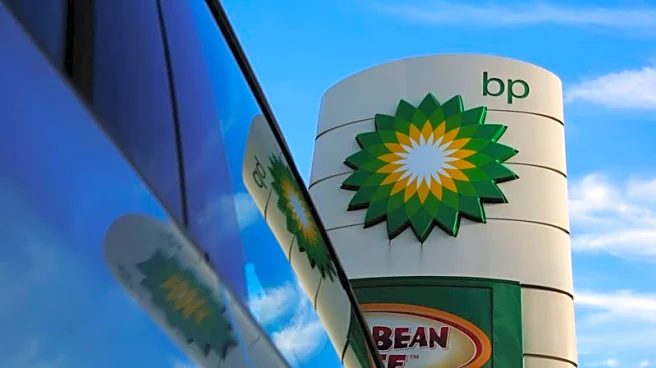What's Happening?
The beverage industry is undergoing significant transformation, driven by evolving consumer preferences towards health and wellness. According to Rebecca Marquez from The Association for Packaging and Processing Technologies (PMMI), the industry is shifting from traditional soda and alcohol offerings to innovative products like THC-infused drinks, mocktails, and nutraceuticals. This change is largely influenced by younger adults consuming less alcohol and preferring mid-strength options perceived as healthier. Despite the rise of non-alcoholic beverages, traditional categories like wine continue to hold cultural and economic significance, though they face challenges such as tariffs and declining demand.
Why It's Important?
The shift in consumer preferences presents both opportunities and challenges for the beverage industry. Companies that adapt to these trends can capitalize on the growing demand for health-focused and innovative products. However, they must also navigate economic pressures, labor shortages, and regulatory changes. Success in this evolving landscape requires optimized supply chains and the integration of technology, such as AI-driven analytics, to identify trends and improve operational efficiency. Established brands face competition from emerging players, necessitating strategic adjustments to maintain market share.
What's Next?
Beverage manufacturers are expected to continue embracing new technologies and operational models to meet consumer demands. This includes implementing direct store delivery models and automation in logistics to enhance distribution efficiency. Companies will likely focus on leveraging data analytics for better forecasting and supply chain optimization. As the industry evolves, the integration of AI and user experience design into marketing strategies will become increasingly essential, enabling quick adaptation to emerging trends and consumer behaviors.
Beyond the Headlines
The transformation in the beverage industry reflects broader cultural shifts towards wellness and sustainability. As consumers prioritize health, brands must consider ethical and environmental implications in their product offerings and production processes. The rise of non-alcoholic and functional beverages also suggests a long-term shift in societal attitudes towards alcohol consumption, potentially influencing public health policies and industry regulations.











